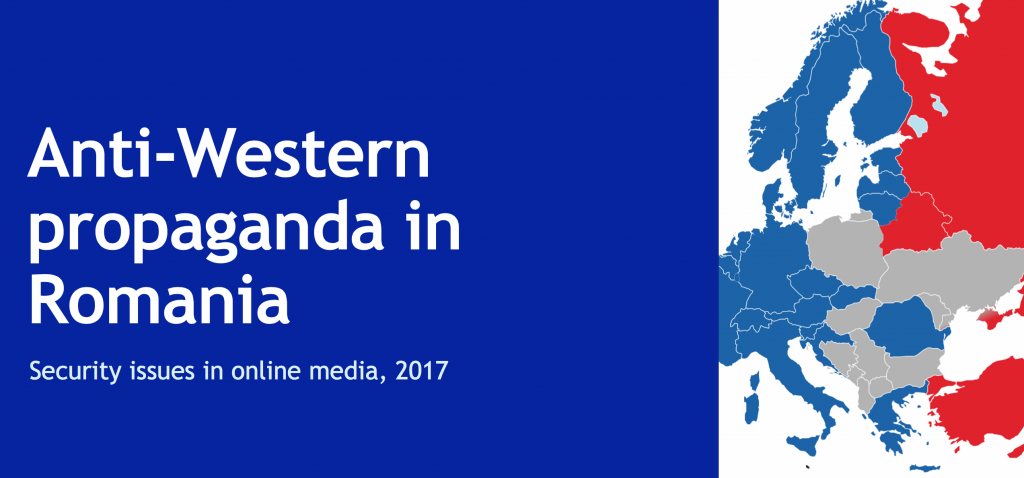Please find attached Anti-western propaganda in Romania 2017 – a presentation about the anti-Western narratives in Romania, with an accent on security and military issues in Romanian online media, in 2017.
This presentation was part of the second Bucharest Security Conference – 28-30 September 2017, Bucharest, SNSPA.
During the first reunion of the Bucharest Security Council, in November 2016, the hybrid war was in important chapter on our agenda. Just two months before the conference, in September 2016, a Report of the CEPA Forum was mentioning the fact that an essential instrument of the hybrid war – “Russia’s information warfare offensive against the West and its allies” – is a “sophisticated, ubiquitous and increasingly effective”tool. We are facing two very important challenges in this context: the first one is to identify the real components of this ”information warfare offensive” and of the hybrid war in general; and second, to discuss what kind of legal, regulatory and social decisions / actions can counteract or constrain hostile and subversive media – and especially the increasing amount of fake news – or the targeted propaganda.
A critical discussion of the complex system of hybrid war is represented by the narrative developed by Russia on its role as the defender of the “compatriots” abroad and the guarantor of the rights. The Ukranian crisis – the war in the Eastern part of this country – has proven that Moscow can use the presence of a Russian-speaking minority as pretext for military intervention aimed at the “protection of ethnic Russians” abroad[1]. Let us mention that the Rusiian Law of 1999 has a very large and confusing definitioin of the so-called “compatriots” (even poles and finns could become “compatriots”).
Another aspect refers to the influence of Russian media not only in the “near abroad”, but aslo in the NATO’s member states on the Euro-Atlantic frontier. According to one of our recent reports, we are witnessing an increasing number of “negative narratives as well as a diversification and adaptation to the Romanian context”. There is a connection between anti-NATO’s negative narratives and the Russian agenda. A category of the public (the youth) seems to become more vulnerable to the narratives that underminde the credibility of Western institution[2].
Social media – online media – represent the channels most used in the current information war[3].
[1] See Arthur Kacprzyk, Detering Russia after Ukraine…, Policy Paper number 13(96), July 2017, p1
[2] See CPD, Saber Guardian study – https://civicparticipation.ro/blog/saber-guardian-2017-how-natos-display-of-force-was-reflected-in-romanian-online-media/
[3] CPD, West vs East in Romania’s online media – https://civicparticipation.ro/blog/study-west-vs-east-in-romanias-online-media-may-2017/
